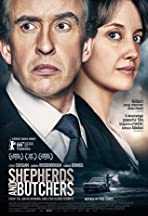Most Bollywood and even regional films have little emphasis on India's northeast. Many of the residents are frowned upon for their Chinese appearance. There is only a 22 kilometer corridor known as the Chicken's Neck that connects the Northeast states to the rest of India. There were protesters against becoming part of India in 1947and still there are some who want to separate. When we pick up the history there are competing factions.
As A Canadian I am well aware of a Quebec sentiment that resents being part of Canada. Francopones feel alien in some ways while there is English resentment of bilingualism. There is no significant violence and if we are honest both the English and French are better off for what they each bring to the table. In addition Canada has welcomed people from all corners of the world. India truly is a diverse country with a multitude of languages, religions and ethnicities. We live in a very connected world and would all benefit by better understanding the connections.
Racism is an ugly blot on mankind, but undeniably does exist. In India it is displayed by caste,religion, languages, skin color, Chinese appearance and regionalism. Check http://www.therealjohndavidson.com/2013/08/bollywood-and-skin-colour.html
The film has two parallel themes. One theme is a traditional military/diplomatic effort that erupts into killing violence from time to time and lots of covert activity led by Aman, known as Joshua. The other theme is led by Aido, a young woman who boxes and wants to make the Indian national team, but has run up at least partly against racist sentiments.
Aido and Aman have a close relationship, but she doesn't know he is actually an undercover agent who wants to prevent Northeast elements from gaining independence. She wins a tough match and is congratulated and told by Gopal she should represent India. They break up when she learns he is an undercover agent. He of course is starting to better understand the other side.
Near the end is some violent fighting and Aman captures a resistance leader he had been told to kill. He felt there was a need to negotiate with both factions. There was some ambiguity left, but will Aido do better in the ring and establish herself as an Indian?
Anubhav Sinha produced, directed and co-wrote the script. Before getting into movies he had some experience with theatre, music videos and a very successful tv. show "Sea Hawk" (1997). Other credits include "Ra-One" (2011), "Article 15" (2019), "Thappad" (2020). Both his wife and brother are film directors. Check: http://www.therealjohndavidson.com/2019/09/article-15.html
Mangesh Dhakde provided the music. He comes from a Indian classical music family that exposed him to jazz, Western Claasical and Brazilian. Mangesh joined the Film and Television Institute of India where he studied for 4 years His credits include: "Lipstick Under my Burkha" (2016), "Article 15" (2019), and "Thappad" (2020). Check: http://www.therealjohndavidson.com/2020/05/thappad-or-in-english-slap.html
Ayushmann plays covert operative Aman He has developed a reputation for choosing roles with a social element
to them. For example in his first feature he was a sperm donor with "Vicky Donor" (2012). In "Dum Laga Ke Haisha" (2015) he tries to get out of an arranged marriage with an overweight girl better educated than him. In "Shrubh Mangal Savdhan: (2017) he had erectile disfunction. In "Article 15" (2015) he played a military officer fighting caste discrimination. In "Chandigarh Kare Aashiqui" (2021) he plays a man sexually attracted to a transgender women. Check: http://www.therealjohndavidson.com/2022/01/chandigarh-kare-aashiqui-another-social.html
Andrea Kevichusa plays the leading lady, Aido. A boxer who wants to represent India in the hopes that it will give greater acceptance for her people. Andrea was a model and caught the eye of film makers. As an actress she was surprised to learn that her birth state wasn't recognized as part of India by a co-worker.
It is an action film with lots of shooting, but one that questions taken for granted prejudices. It may be unusual for women's boxing being a tool for breaking barriers, but there is a history of boxing and racial barriers. http://www.therealjohndavidson.com/2022/02/muhammad-ali-by-ken-burns.html There is a contrast between violence of guns and the violence of organized sport. Freedom has always come when someone resists the status quo. As an outsider I feel I am more aware of a situation than I was previously. For those closer to the situation hopefully they will have better understanding.









